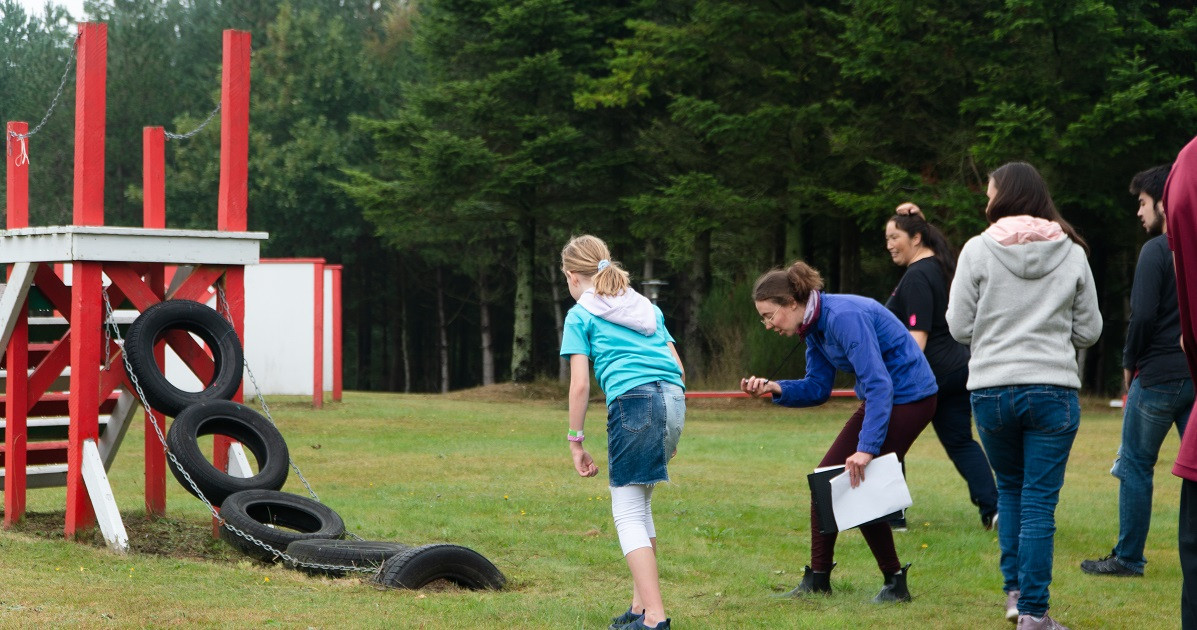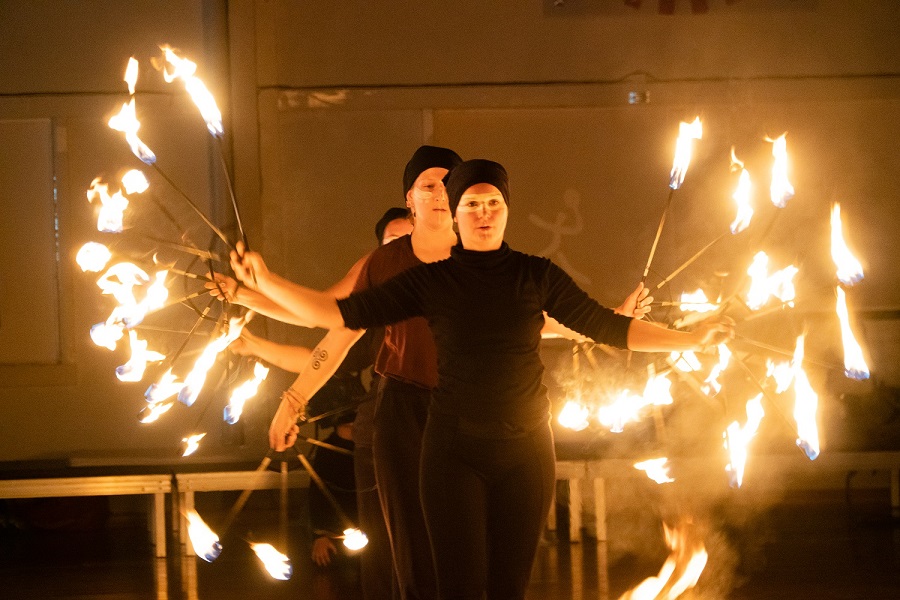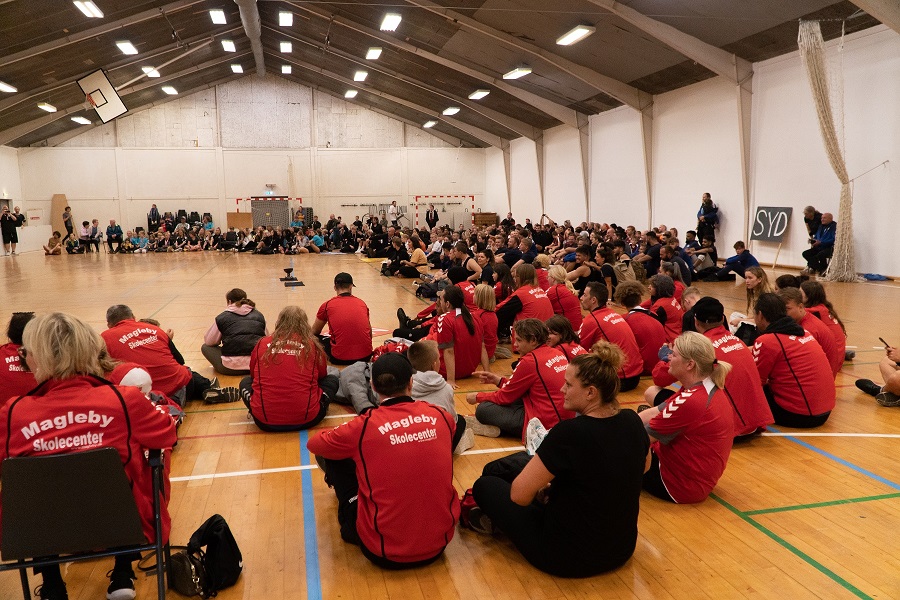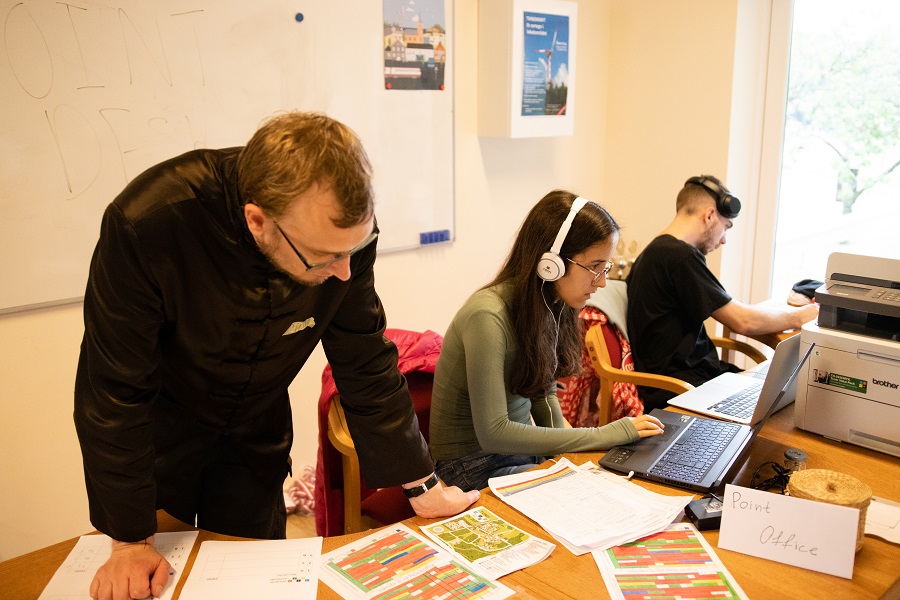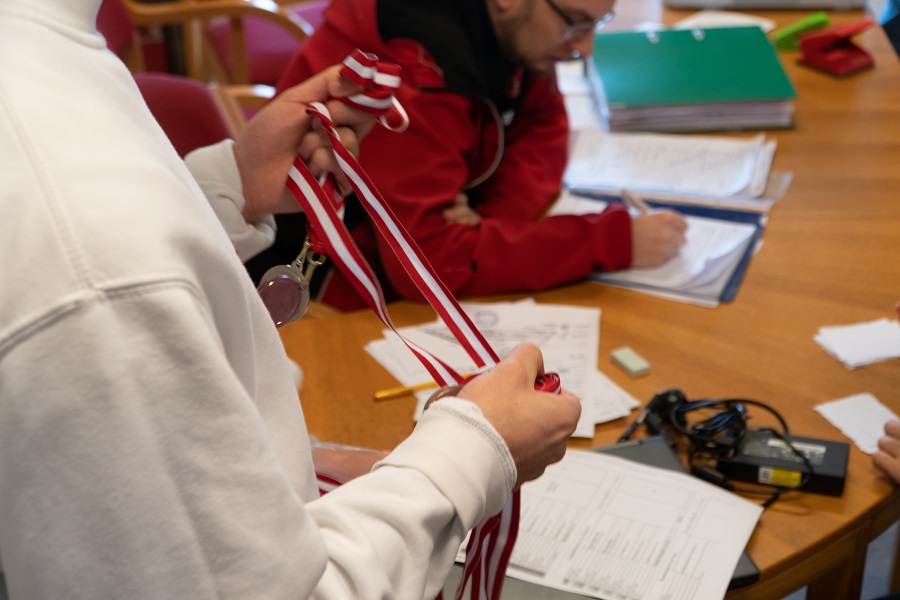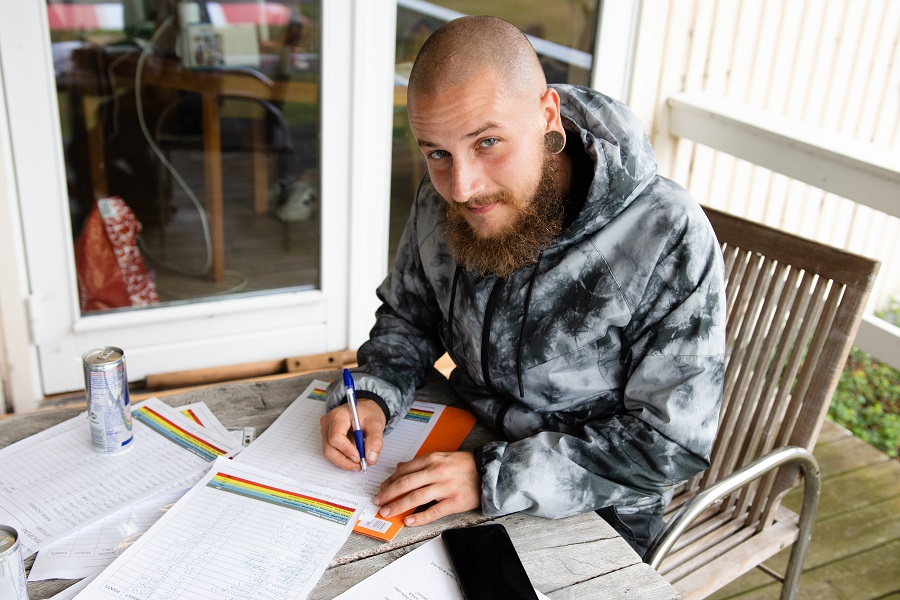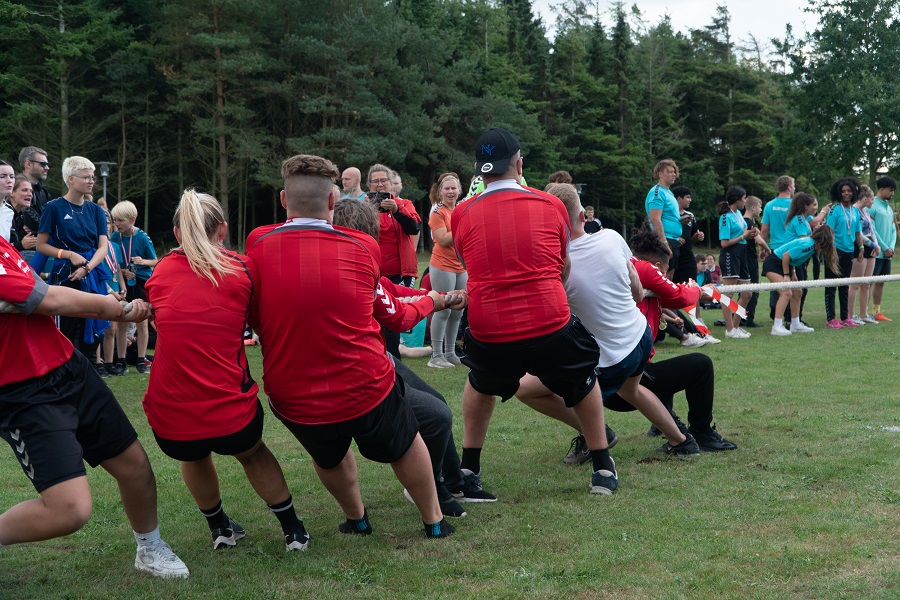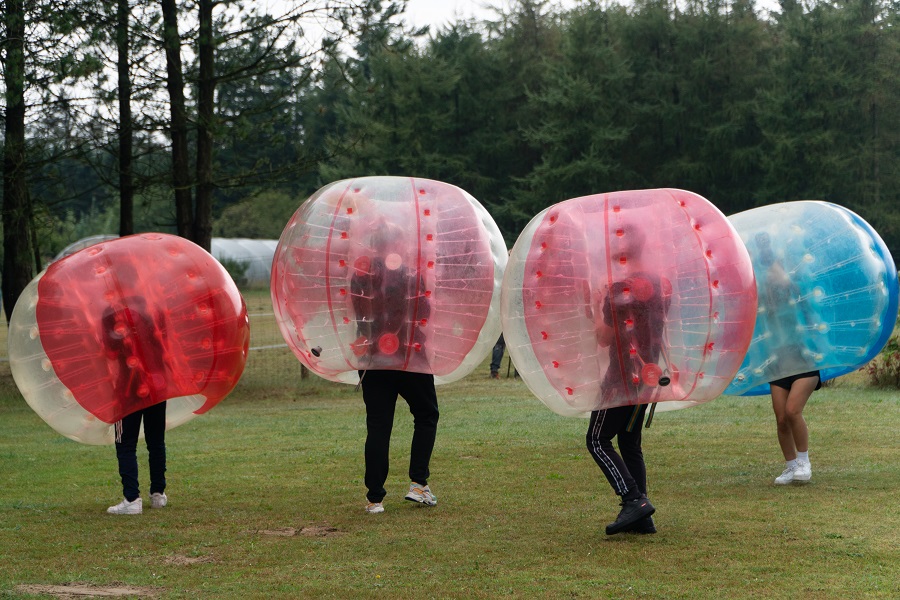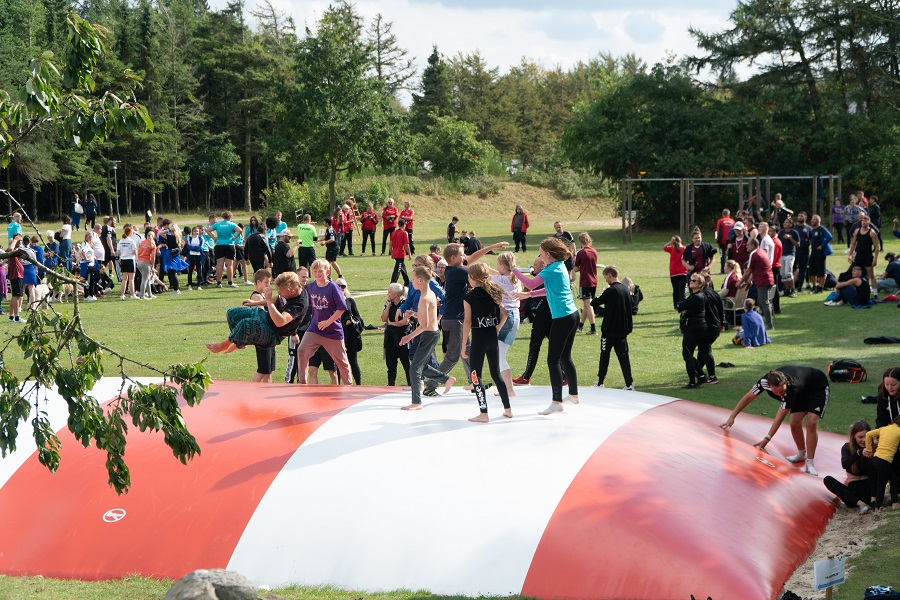500 people - 500 smiles! An unforgettable experience
By David Hegedus, Poverty Activist team August 2022
I think we are talking about an event and experience that forms a defining part of our Development Instructor programme in addition to the studies. Not only because I had an unforgettable experience with my team, but also because it presents challenges, gives me a lot of experience and I have acquired new skills - skills that I can use during my project period and the rest of my life.
What are the Tvind Olympic Games?
Different events are held in Danish small schools every year: Autumn Concert, Winter Concert, Summer Theater and the Olympic Games - our team participated in the latter at the Danish Tvind - DNS (English: The Necessary Teacher Training College), our sister school (DRH Lindersvold) and other volunteers. The Olympic Games are an old tradition at DNS, the main idea of which is that children and young people from Danish care homes and schools meet for two days of sports, games, social interaction and good fun! The sporting event of the Olympic Games (hereafter referred to as OL) involves around 500 people in more than 70 different disciplines – from team sports such as football, volleyball and basketball to archery, athletics, cycling, mountaineering and other individual sports everything up to sports. They also offer many activities for those who are not big sports fans; like chess, street art, puzzles and more! And the most important thing, as the OL motto says: "Everyone is a winner"!
Preparing a big and complex event
Our task was to prepare the event for 500 people, including the smallest details. About 60 people participated in the organisation. Everyone was free to choose from the organisation of the various sports categories as they wished. I chose the "Hitting Sport" category, which included disciplines such as: Football Golf Shooting, Stigegolf, Badminton, Table Tennis, Table Football or Bowling, I had to organize a total of 13 disciplines together with two other volunteers.
The preparation was a huge challenge. We had 2-3 days to put together the event. All this so that it is as good and error-free as possible! Our team undertook the management, planning and creation of the tasks, the construction of point systems, the procurement of props, the development of rules and gameplay, and the conduct of the various disciplines on the day of the event. Among the other tasks, I had to follow specific instructions on how to complete the task. All of this presented challenges to my organisational and leadership skills, however, I gained many useful skills - I realized afterwards that I will be able to use these experiences in my project and, of course, in other areas of my life.
So... the more we immersed ourselves in the organisation: we noticed small and big things that had to be planned, taken care of, properly prepared and most importantly: Communicated! The latter helped us to realise the event with as few errors as possible. We didn't leave anything to chance! Through the organisation, our team became more experienced in making good use of each other's strengths, we created new ideas and solutions when we got stuck somewhere and we incorporated them into the event in such a way that it was precise and perfect! I saw a lot of alternatives and solutions for solving different tasks from other teams - I really liked that - I learned a lot from other organisers! It was a great feeling to work knowing that you can turn to your team, teachers, DNS-ers or other volunteers for help - it increased my team spirit from the beginning and taught me to adapt to other people's ideas.
I will not lie! There were moments when I thought we wouldn't be ready in time... Later I realised it all depends on what we focus on: can't we finish in time? Obsession! How can we finish in time? Essentially a huge and helpful team working together for a common goal. To put a smile on the faces of 500 people - and I think that was the motivation for everyone, why we were able to create this event, with the power of the community.
There is place for everyone - the Small Schools in Denmark
The small schools started in the early 1980s. They were created when teachers working in many residential schools realised that some of the students had great difficulty in following the usual standards and lessons. Some students simply needed different challenges and experienced many setbacks early in life, perhaps being kicked out of some schools due to bad behavior, family life difficulties, drug problems, delinquency, or other serious problems early in life. Another solution had to be found...
During our trip to Denmark, we visited two of these schools: one is called Søgårdhus and the other is Holsted. The small schools have become known as schools that have a valuable and remarkable profile: Its educational foundations are holistic, as they use a variety of educational approaches that are adapted to the special changing needs and prerequisites of the individual. Some are boarding schools, some are care homes and some are day schools.
For example, at Søgårdhus, they work on the basis that their pedagogy looks beyond young people's behavior and sees opportunities rather than limitations. Their task is to find a common goal and to create everyday life around young people where the foundation of work and development lies in trust between people. Different methods are used in their pedagogy, such as: structured and clear pedagogy, targeted work with the abilities and possibilities of each young person, and a big sailing ship which is used as a pedagogical tool - we also went on this ship and crossed the border between Denmark and Germany also with a motorboat. Yes, all this during our trip to Denmark... but that's a separate story!
About the Small Schools through my eyes
It felt so good to see that there was hope. There is hope because there are people who help those who need it. Teachers who are also friends, parents and role models for those problematic young people who have been ostracised by society on the grounds that they do not meet the standards expected by the average person. I was also such a "problem youth" in primary and secondary school and it gave me great hope when a former teacher of mine said: "Dávid, a good teacher is never proud of being able to teach something to children who fit in easily and have no problems. A good teacher should be proud when he works with children who are not accepted by society or who have problems - and he can develop all this together with the student/child". I completely agree with your words! I have seen such teachers in these schools. Another Kind of Teachers.
The Big Common Event
It was great and a great event! What made the biggest impression on me was when I recalled what I had learned in previous Gaia classes. When we got to know how the Travelling High Schools, Humana People to People, CICD, Tvind and our sister schools were started. Where and how did it all begin? 8 people went on a round-the-world trip by bus in the 70s... More than 50 years later, studies, curricula, and educational institutions based on precise experiences have spread born around the world. I also study and live.in one of them - CICD.
I remember thinking about how lucky I was several times during the organisation of the event. Thousands of volunteers and teachers, hundreds of people who want to do something for the world are part of this huge community of which I am an integral and important part - this is a strong and meaningful feeling for me! Furthermore, it was good to see how many mountains we can move with hard and organised teamwork, strategy, invested effort and the power of the community.
500 people - 500 smiles - this was the best thing I saw during our trip to Denmark and the OL event.




